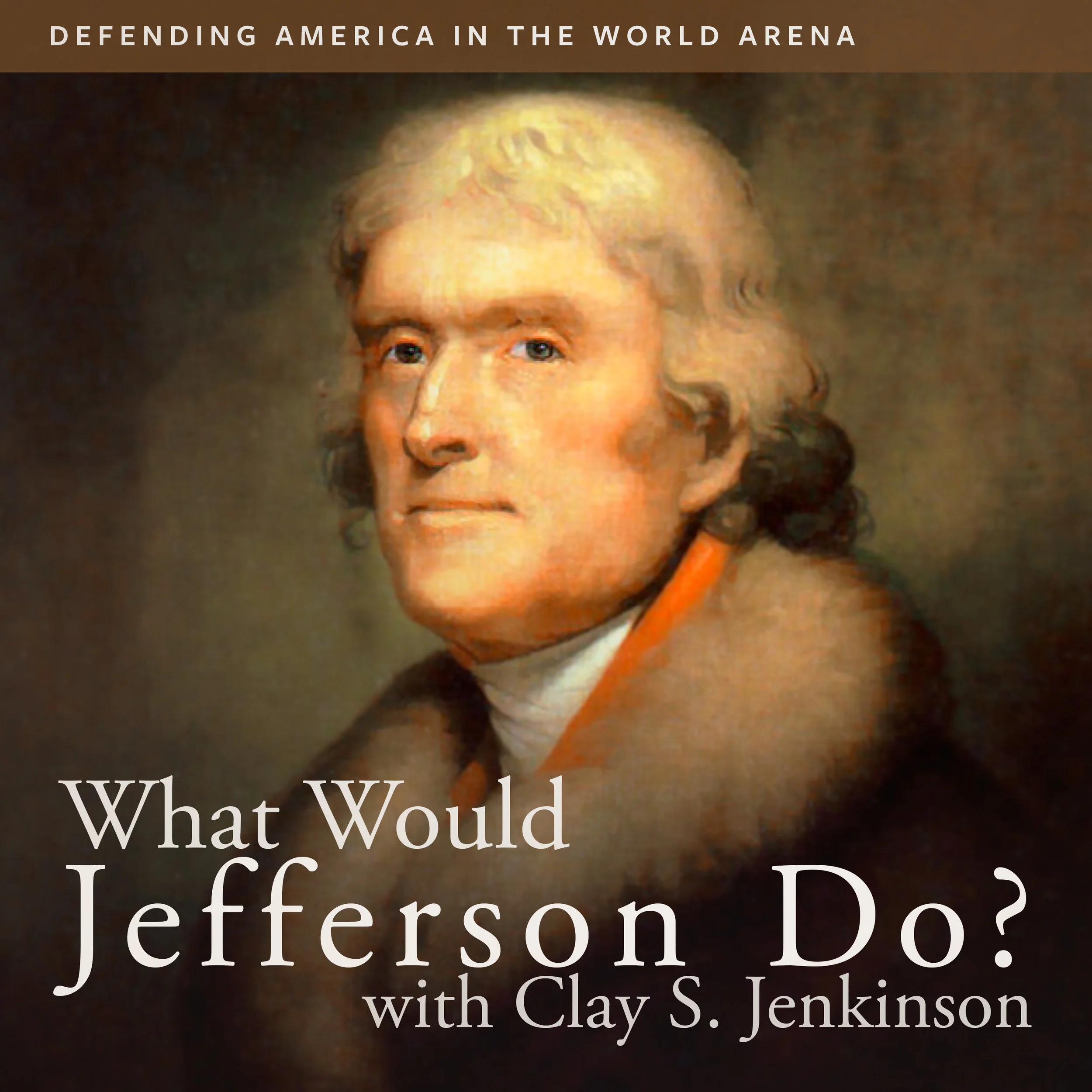“The duty of the President of the United States is to be the principal articulator of America’s values.”
Tune in to your local public radio or join the 1776 Club to hear this episode of What Would Thomas Jefferson Do?
The following is a rush transcript.
David Swenson: 00:00 Good days, citizens, and welcome to What Would Jefferson Do?, our weekly opportunity to discuss current American events with President Thomas Jefferson, who is seated across from me now. Good Day to you, Mr Jefferson.
Clay S. Jenkinson portraying Thomas Jefferson: 00:00 Good day to you, citizen.
DS: 00:19 Mr. President, there's been a public outcry about an incident which occurred recently. Our current president was overseas and made some remarks that were interpreted as being fairly disparaging against American law enforcement agencies and the judiciary. I wonder if anything like that happened during your time, sir, and if you could reflect on it.
CSJ as TJ: 00:43 No, I don't think anything of that sort happened between my birth in 1743 and my death in 1826. I do remember one incident at a lower level in which my protege, James Monroe was serving as the American minister to France. He was impressed by the French revolution and the republic that was emerging out of the chaos of the French revolution, and he gave public praise to what was occurring in France, and that made George Washington, who was then the president, very unhappy. He recalled Monroe because our official position was to be neutral in the face of the cataclysm occurring in France and Monroe came back to this country and something like disgrace. He wrote a very long defense of his actions. He never forgave George Washington. When you are a representative of this country, whether you are a diplomat or a United States senator or governor, or for that matter, the president of the United States, your duty is to be an advocate for this republic, for us to defend us in the world's arena, even when it's difficult to make the best case for American values, to protect the United States against its enemies or adversaries. If you do anything to encourage your adversary and to belittle your own country, it seems to me that you have made a colossal error of representation. The American people do not elect their presidents to degrade our basic institutions. And if a president feels that our domestic institutions are flawed or corrupt, his duty is to try to reform them quietly from the inside. But not to make a public matter of this and particularly not to make a public matter of this when he's abroad. We have one and only one person who is elected by the people to represent this country in the world. And if that person is not a patriot and advocate a defender and of American purposes, then we have to ask whether he is an able representative of the dignity and the ideals and the constitution of the United States.
DS: 03:17 Mr. President, you said that it is a president's job to try to reform agencies that he believes are not doing their job or corrupt. So we look at it from his side, your complaint would be that he did it publicly.
CSJ as TJ: 03:32 Well, publicly is one thing, but abroad is quite another. You know, the United States is a sovereign nation. I'm quite certain that in the course of our history, we have sometimes done bad things. Our position has been untenable at certain points, no doubt. Other nations have found fault with us or criticized us. Whatever is the case, the duty of the president of the United States is to be the principal articulator of America's values and to defend America's positions in the world arena even when it's difficult.
DS: 04:13 So you wouldn't just brush this off as a difference in styles.
CSJ as TJ: 04:17 I can't think so. Now, keep in mind that your system works by elections by majority rule, and if you elect a certain president, he then served for four years unless he commits high crimes and misdemeanors. Elections matter. If the American people choose a person who is known to be bombastic, is known to be sarcastic, is known to be critical of American institutions, the remedy in a society like ours, with the constitutional base under majority rule, is always the ballot box.
DS: 04:55 Thank you very much Mr Jefferson.
CSJ as TJ: 04:58 You're most welcome, sir.


This week Clay responds to listener mail, including many comments regarding a previous show about Shays' Rebellion, and what Jefferson's reaction would be to the insurrection that occurred on January 6, 2021.
The events at the U.S. Capitol on January 6, 2021 dominated the thoughts of most citizens last week. Clay Jenkinson offers his own thoughts and historical perspective along with comments from Jefferson Hour contributors Beau Wright, David Nicandri and Joseph Ellis.
This week on the Thomas Jefferson Hour, along with some listener questions, we present a discussion with Clay Jenkinson and Joe Ellis about the upcoming presidential election and the strong divisions in our nation between the two major political parties.
Join us for a conversation with Joseph J. Ellis, an American historian whose work focuses on the founders of the United States of America. His books include American Sphinx: The Character of Thomas Jefferson and Passionate Sage: The Character and Legacy of John Adams. Ellis speaks about how important presidential leadership is during times of crisis.